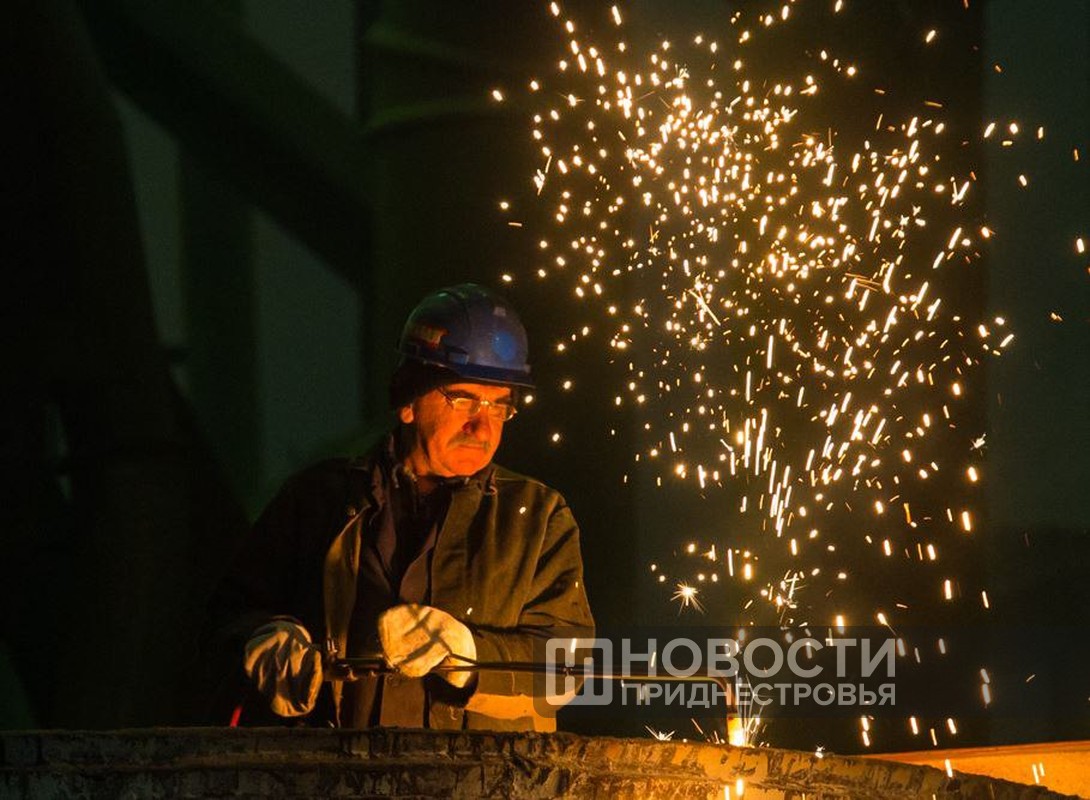Tiraspol - Rybnitsa, June 4. /Novosti Pridnestrovya/. The metallurgical plant in Rybnitsa may face further and considerable difficulties from Moldova. This will happen if the government of the Republic of Moldova assigns the state enterprise “Metalferos” the status of a tax monopoly in the scrap metal sales market. For now, a draft of such a decision is on the government platform for public discussion. It will remain there, as indicated, until June 7.
What does monopoly status mean in this case? This means that only Metalferos will be able to sell scrap metal for recycling. All other companies in the Republic of Moldova that are engaged in the collection, preparation and sale of scrap will have to hand it over on a voluntary-compulsory basis exclusively to Metalferos. They themselves will not be able to transport anything to the same Moldova Steel Works or anywhere else. And Moldova Steel Works will not be able to go to Moldova and buy from them.
Medium and small procurement companies (there are about 50 of them in Moldova) criticized the upcoming government decision. This is understandable: the Moldovan authorities are actually depriving them of the right to free foreign economic activity. The head of the Metal Association, Sergei Lungu, in particular, noted that the planned decision will simply lead to dozens of companies leaving the market.
What is the financial meaning of a monopoly?
Scrap metal collectors in Moldova are protesting for good reason: they will be obliged to sell scrap to Metalferos at the price that it will indicate. And this price will almost certainly be much lower than the market price.
The following pricing formula is proposed: “Metalferos” takes as a basis the average value of scrap ferrous metal quotes on the Turkish LME CFR exchange for the last week and subtracts from it at its discretion up to 30%. This will be the cost of accepting scrap on the domestic market of Moldova.
And the Moldavian metallurgical plant "Metalferos", in turn, will sell scrap metal according to the following formula: it has the right to add up to 5% to the mentioned Turkish quotations.
It turns out the following: the government of the Republic of Moldova, through political and administrative means, essentially through forceful intervention in the market, wants to give Metalferos the opportunity to buy scrap metal cheaply and sell it at a high price. And in order for one state-owned company to pocket a considerable difference from this type of operation, all other market participants will suffer: both the procurement companies and the processers. In essence, the Moldovan authorities want to support the classic “laying company”, which will have privileged business conditions at the expense of others and, according to preliminary calculations, receive up to $120-130 out of thin air for each ton of scrap metal.
How does all this threaten the Moldova Steel Works?
Moldova Steel Works provides itself with only about 5-10% of local, that is, Pridnestrovian, raw materials. Everything else is being imported. If you look at the customs statistics of recent months, about 35-40% of the volume of scrap metal is imported from the Republic of Moldova, 50-55% from Europe. Unfortunately, the Ukrainian direction for the plant was closed a long time ago.
The monopoly price is always higher than the price formed in the free market. This is an axiom. Therefore, in the event of the emergence of a tax monopoly of Metalferos, the consequences for Moldova Steel Works are obvious: ferrous metal scrap collected in Moldova will become more expensive for it. And taking into account current stock exchange quotes, when the cost of raw materials takes up a very significant part - up to two-thirds - of the final price of products, the plant may fall into a loss streak.
If, for example, a ton of scrap on the Turkish LME CFR exchange costs $374, then to the Moldova Steel Works, taking into account the 5% markup of Metalferos, it will cost $393. And exchange prices for the same wire rod today fluctuate between $525-550.
At the same time, it is completely unclear what Moldova Steel Works will do with the import of scrap metal from Europe. If a tax monopoly for Metalferos is nevertheless established, the plant in Rybnitsa will lose the opportunity to independently import any raw materials. And again everything will have to be done through Metalferos. And for the import of scrap metal from Europe, the Moldovan government’s project does not even provide a cost formula: the price will be completely determined by the Moldovan monopolist himself.
There are other questions: how Moldova Steel Works will interact with Metalferos, who and how will decide how much scrap metal the plant needs from abroad in order to ensure the production process at the proper level, etc. In general, it is clear that most likely no one in the government of the Republic of Moldova carried out an adequate analysis of the proposed initiative.
The draft resolution literally says the following: “Economic agents that do not have tax relations with the budget system of the Republic of Moldova do not have the right to import scrap and ferrous metal waste into the Republic of Moldova. Import of scrap and ferrous metal waste into the Republic of Moldova, subsequently sold to economic agents located on the territory of the Republic of Moldova, which do not have tax connections with its budgetary system, is carried out only by an enterprise with a tax monopoly.”
That is, as they say, it is written in black and white: Moldova Steel Works (namely Moldova Steel Works) cannot import scrap metal, only Metalferos can do this. Such norms, which discriminate against specific enterprises, contradict general principles of law, and, by and large, are arbitrary.
It's happening again
To cover up the legal dubiousness of this project and its obvious inconsistency with European practices (as scrap metal producers also point out), the Moldovan government refers to the recommendation of the National Commission on Tax Monopoly. But there was no agreement in this commission either: only three out of five members voted to give Metalferos monopolist status. In addition to the authors of the project themselves from the Ministry of Economy of the Republic of Moldova, these are two representatives of pro-government NPOs.
The Metalferos monopoly is actually a long history. It flourished and became commonplace during the reign of Vlad Plahotniuc. Moldovan media then wrote that the monopolist was one of the main “wallets” of the Democratic Party.
And Maia Sandu and her Action and Solidarity party at that time were perhaps the main enemies of this monopoly. In August 2019, less than two months after Plahotniuc’s ouster, Prime Minister Maia Sandu said that Metalferos has a lot of complex corruption schemes and the only way out is to eliminate its monopoly position. And then she kept her word. On November 12 of the same year, when everyone already guessed that her government was about to fall (this happened on the same day), a corresponding decision was made. “In my opinion, this is the best thing we will do in the Ministry of Economy. The Metalferos company, as we all know, for many years has been a pillar, a pocket for those in power,” said the then Minister of Economy of the Republic of Moldova, Vadim Brynzan, at the last government meeting. And Maia Sandu herself emphasized that she “personally waited a long time for this decision and is glad that today another monopoly will collapse.”
What happened now? Why is everything coming back again after 4 and a half years of free competition in the market? And not only is it being returned, but it is being offered in an even worse form than before: there has never been a ban on the free import of scrap metal from abroad for Moldova Steel Works, including during the time of Plahotniuc.
Whose “pocket” will the monopoly become this time? Did anyone need money for an election campaign again? Or is it necessary to ensure the loyalty of certain officials through the excess profits of Metalferos?
Vladimir Dmitriev








